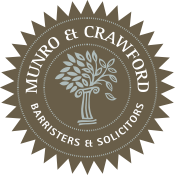
An Alter Ego Trust is a special type of trust available to Canadians aged 65 or older. It allows you to transfer assets into a trust while still retaining full control and benefit of them during your lifetime. Alter Ego Trusts are often used for estate planning because they offer privacy and probate advantages.
Here’s what you need to know about Alter Ego Trusts in British Columbia, including their benefits, potential drawbacks, and how they might fit into your estate plan.
What Is an Alter Ego Trust?
An Alter Ego Trust is a legal arrangement where you, as the settlor, transfer assets into a trust but continue to:
- Control the assets
- Receive all income and benefits from them during your lifetime
Only after your death do the trust assets pass to your named beneficiaries, avoiding probate.
Key Features:
- Available to individuals aged 65+
- Settlor is the sole beneficiary during their lifetime
- Assets pass to other beneficiaries after death
- Can only be revoked by the settlor
Advantages of an Alter Ego Trust
1. Avoids Probate in BC
Assets in an Alter Ego Trust do not form part of your estate for probate purposes. This can:
- Avoid probate fees (1.4% on estates over $50,000 in BC)
- Speed up distribution to beneficiaries
- Reduce court involvement
2. Provides Privacy
Probate is a public process. Assets passing through a will become part of public records. An Alter Ego Trust keeps the details of your assets and their distribution private.
3. Smooth Succession
By appointing a successor trustee, you can ensure a seamless transition in managing your assets if you become incapacitated.
4. Potential Creditor Protection
While not a foolproof shield, assets in a properly structured trust may be more protected from certain claims than assets held personally.
5. Estate Planning Flexibility
Trusts can be tailored to manage complex family dynamics, blended families, or specific distribution wishes.
Disadvantages of an Alter Ego Trust
1. No Tax Deferral on Capital Gains at Death
Unlike passing assets to a spouse, there is no tax rollover when assets in an Alter Ego Trust are deemed disposed of at your death. Capital gains tax may apply.
2. Set-up and Ongoing Costs
- Legal fees to establish the trust
- Possible accounting and administration costs to maintain it
3. Loss of Simplicity
Managing a trust adds complexity compared to holding assets personally.
4. Not Suitable for All Assets
- RRSPs, RRIFs, and certain registered accounts cannot be transferred into an Alter Ego Trust.
5. Creditor Protection Limitations
Assets transferred to avoid creditors can be challenged. Proper legal advice is essential.
Alter Ego Trust vs. Joint Ownership vs. Will
| Method | Avoids Probate? | Public Record? | Tax Efficient? |
| Alter Ego Trust | Yes | No | No rollover at death |
| Joint Ownership | Yes (for that asset) | No | Possible tax issues |
| Will | No | Yes | Spousal rollover applies |
Each method serves a purpose, and often, a combination is used depending on the type of asset and personal goals.
Who Should Consider an Alter Ego Trust?
You may want to explore an Alter Ego Trust if:
- You are over 65 and concerned about probate fees
- Privacy in estate matters is important to you
- You have a straightforward estate but wish to avoid court processes
- You want to ensure seamless asset management in case of incapacity
Why Work with a Lawyer?
Setting up an Alter Ego Trust involves careful planning and legal expertise. A lawyer will ensure:
- The trust meets BC legal requirements
- Tax implications are clearly understood
- Your estate plan integrates smoothly with existing documents
At Munro & Crawford, we help clients evaluate whether an Alter Ego Trust is right for them and guide them through the process with clarity.
Taking the Next Step
An Alter Ego Trust can be a valuable estate planning tool, but it’s not the right fit for everyone. Understanding its advantages and limitations is key.
If you’re considering adding a trust to your estate plan, our team at Munro & Crawford is here to help you make an informed decision.






